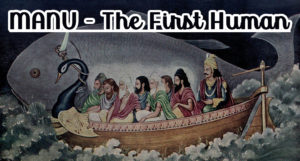Tensions between India and Canada escalated on Monday, September 18, following Prime Minister Justin Trudeau’s explosive statement suggesting India might have been involved in the June 18 assassination of prominent Sikh Canadian leader, Hardeep Singh Nijjar, on Canadian soil. Soon after, the Canadian government expelled a senior Indian diplomat; India swiftly retaliated by issuing a statement the next day denying any role in Nijjar’s death and expelling an unnamed senior Canadian diplomat.
Canada has not presented any evidence or details connecting India to the killing. In response, the Indian government labeled Trudeau’s accusations as “politically motivated” and biased, pointing out that Canada had expelled an Indian diplomat solely based on unverified allegations.
Indications of worsening relations between Canada and India had became evident even at the recent G-20 summit in New Delhi when Canadian Prime Minister Justin Trudeau diverged from other Western leaders by not engaging in formal one-on-one discussions with Indian Prime Minister Narendra Modi. Instead, both leaders expressed significant concerns during informal interactions on the sidelines of the summit. Modi’s office reported that he raised the issue of “ongoing anti-India activities involving extremist elements in Canada.”
The remarkable intensification of tensions with Canada, an unprecedented occurrence in India’s history of diplomatic relations with Western nations, has raised apprehensions regarding potential repercussions across various domains, notably trade and interpersonal ties. This concern is particularly heightened considering the longstanding and profound ties between the two nations and that Canada hosts a higher percentage of Sikhs in its national population than even India.
Amid escalating diplomatic tensions with Canada, India took the step of suspending visa services in the country on Thursday, September 21.
What were the underlying causes of the tension?
The tension stemmed from the killing of Nijjar, a 45-year-old who was fatally shot outside a Sikh temple on June 18 in Surrey, a Vancouver suburb known for its significant Sikh population. Notably, India had designated him as a “terrorist” three years prior to his death.
Nijjar was an advocate for the creation of a Sikh homeland in India’s northern state of Punjab, the historical birthplace of the Sikh religion, which shares a border with Pakistan. Reports indicated that he was actively involved in organising an unofficial referendum within India to seek independence for a Sikh nation under the umbrella of the Khalistan movement.
The Khalistan movement reached its zenith in India during the 1980s, marked by a violent insurgency – primarily concentrated in Punjab, a state with a Sikh majority. The Indian government subdued the movement through military force, and it has lost significant support and influence within India. However, it still enjoys popularity among certain segments of the Sikh diaspora residing in countries like Canada, Australia, and the United Kingdom.
In response to these developments, Prime Minister Trudeau, on Monday, underscored that any involvement by a foreign government in the killing of a Canadian citizen constituted “an unacceptable violation of our sovereignty.”
“The government of India needs to take this matter with the utmost seriousness,” stated Canada’s Prime Minister Justin Trudeau during a press conference in Ottawa on Tuesday. “It is extremely serious and it has far-reaching consequences for international law and order.”
How Has India Retaliated?
The government has halted visa services in Canada citing “security threats” that have hindered the ability of their officials to perform visa-related tasks. The foreign ministry stated, “You are aware of the security threats being encountered by our High Commissions and Consulates in Canada, which have disrupted their usual operations.”
Just a few months ago, the nations were advancing toward finalising a long-awaited free trade agreement for this year. However, negotiations have been temporarily halted, and a planned Canadian trade mission to India has been postponed.
Later during his interaction with reporters in New York, while attending the UN General Assembly, Mr Trudeau emphasised, “Undoubtedly, India is a nation of increasing significance, and it is imperative that we maintain our collaborative efforts with them.”
Now it depends how the two governments work towards a conclusion in want of peace and growth together.








